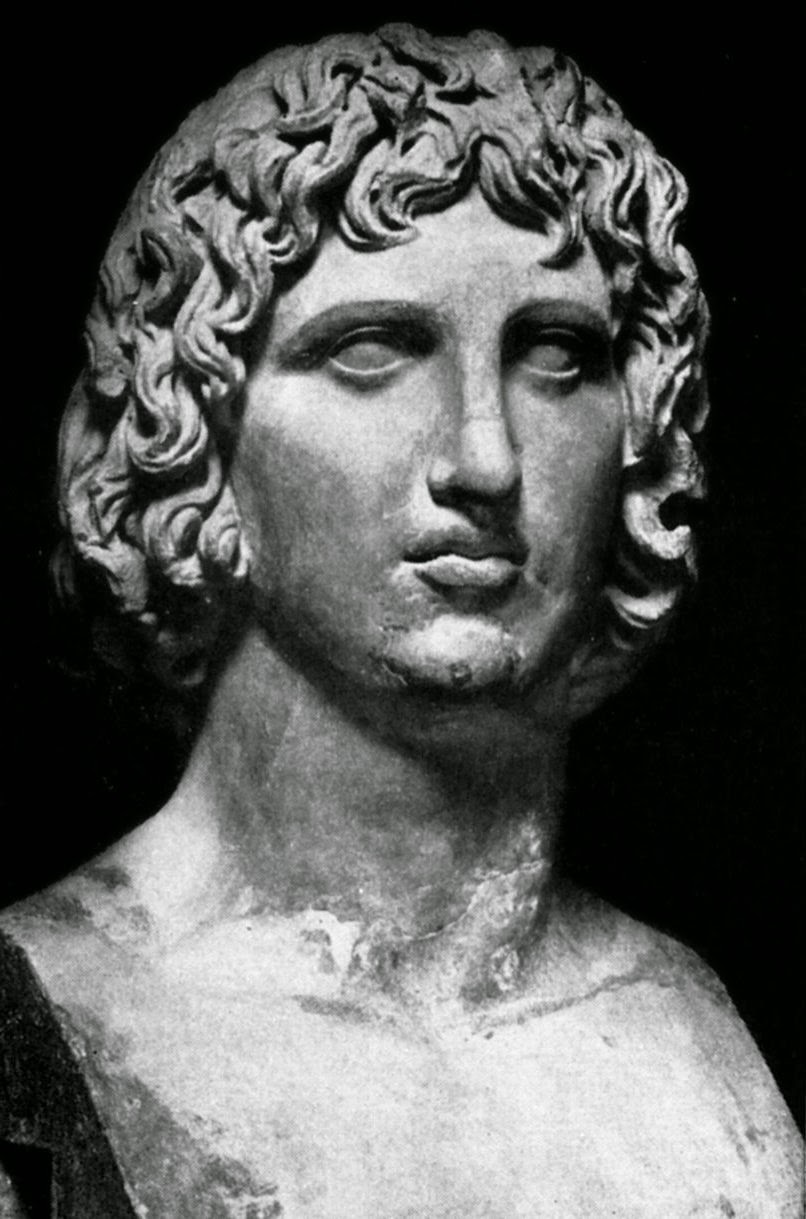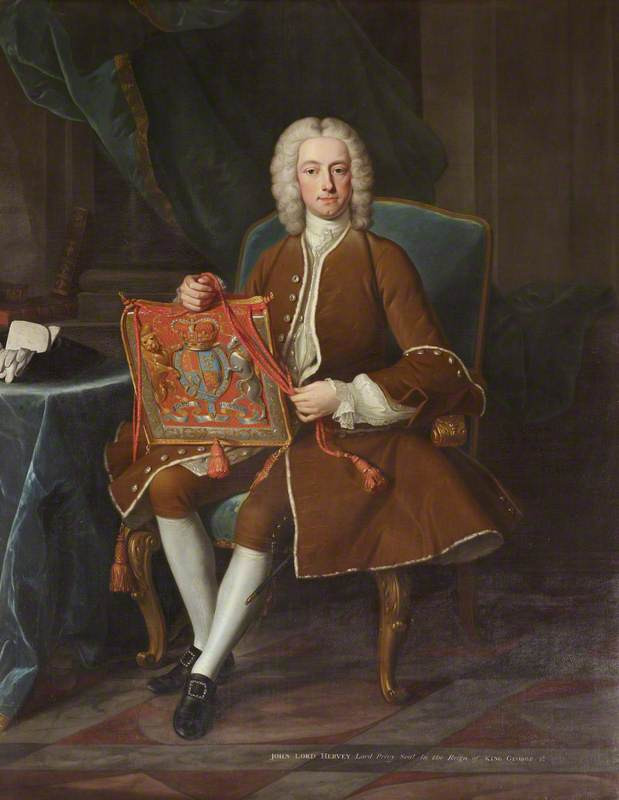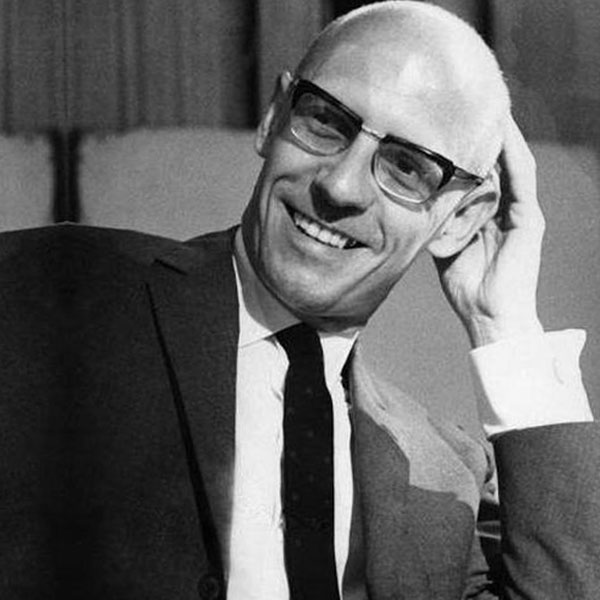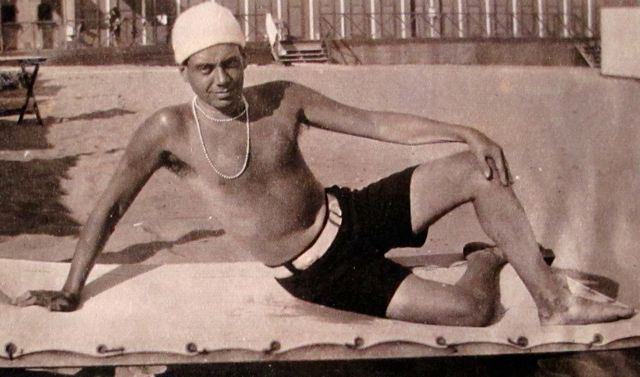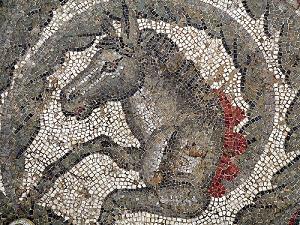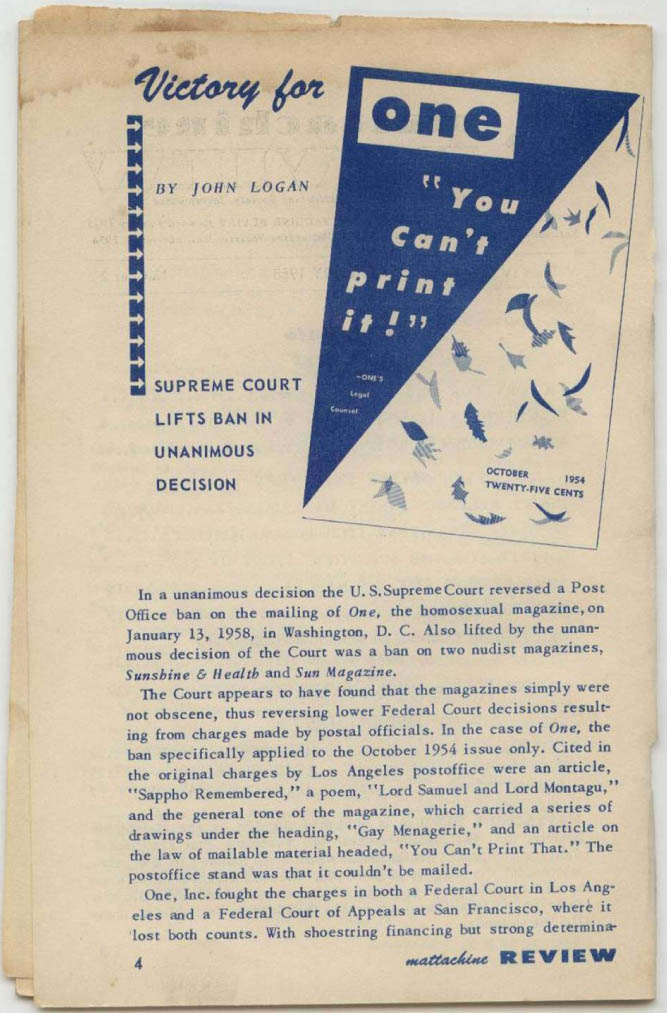|
Gay Wisdom for Daily Living brought to you by White Crane Institute ͏ ͏ ͏ ͏ ͏ ͏ ͏ ͏ ͏ ͏ ͏ ͏ ͏ ͏ ͏ ͏ ͏ ͏ ͏ ͏ ͏ ͏ ͏ ͏ ͏ ͏ ͏ ͏ ͏ ͏ ͏ ͏ ͏ ͏ ͏ ͏ ͏ ͏ ͏ ͏ ͏ ͏ ͏ ͏ ͏ ͏ ͏ ͏ ͏ ͏ ͏ ͏ ͏ ͏ ͏ ͏ ͏ ͏ ͏ ͏ ͏ ͏ ͏ ͏ ͏ ͏ ͏ ͏ ͏ ͏ ͏ ͏ ͏ ͏ ͏ ͏ ͏ ͏ ͏ ͏ ͏ ͏ ͏ ͏ ͏ ͏ ͏ ͏ ͏ ͏ ͏ ͏ ͏ ͏ ͏ ͏ ͏ ͏ ͏ ͏ ͏ ͏ ͏ ͏ ͏ ͏ ͏ ͏ ͏ ͏ ͏ ͏ ͏ ͏ ͏ ͏ ͏ ͏ ͏ ͏ ͏ ͏ ͏ ͏ ͏ ͏ ͏ ͏ ͏ ͏ ͏ ͏ ͏
|
|
||||
| This Day in Gay History | ||||
October 15Born 0070 BCE - VIRGIL, Roman poet, born; the author of epics in three modes: the Bucolics (or Eclogues), the Georgics and the substantially completed Aeneid, the last being an epic poem in the heroic mode, which comprised twelve books (as opposed to 24 in each of the epic poems by Homer) and became the Roman Empire’s national epic. In themes the ten eclogues develop and vary epic song, relating it first to Roman power, then to love, both homosexual (ecl. 2) and panerotic (ecl. 3), then again to Roman power and Caesar's heir imagined as authorizing Virgil to surpass Greek epic and refound tradition, shifting back to love then as a dynamic source considered apart from Rome. Hence in the remaining eclogues Virgil withdraws from his newly minted Roman mythology and gradually constructs a new myth of his own poetics: he casts the remote Greek region of Arcadia, home of the god Pan, as the place of poetic origin itself. In passing he again rings changes on erotic themes, such as requited and unrequited homosexual and heterosexual passion, tragic love for elusive women or magical powers of song to retrieve an elusive male. He concludes by establishing Arcadia as a poetic ideal that still resonates in Western literature and visual arts. Since Virgil depicted his hero Aeneus seeking advice from his father Anchises in the underworld, Dante Alighieri made the shade of Virgil his own guide for his pilgrimage through the inferno and part of purgatory in his own epic poem The Divine Comedy. 1696 - JOHN HERVEY, Baron Hervey of Ickworth born; In the 1730s, one of the most famous and venomous literary feuds in history broke out between Baron Hervey and Alexander Pope. Pope, supposedly jealous that his friend, Lady Mary Wortley Montagu had taken up with Hervey, began satirizing Hervey’s effeminacy in his poetry, most notably as “Lord Fanny” in Imitations of Horace as “Sporus” in the Epistle to Dr. Arbuthnot. If Pope’s picture of the mincing Lord Fanny had not set London laughing, the reference to Sporus had literate London holding its sides, since Sporus was the boy “bride” of Nero who would bare his rear for the emperor to “have at” in public. (At the time, Nero’s “husband” was Doryphorus, who would return the favor in kind – also in public.) Hervey, understandably upset by these jibes, responded with verses of his own that ridiculed the crippled poet’s hideous hump and his less than noble birth. London found this hilarious too. Eventually the feud died down and was forgotten. Unfortunately for Hervey, however, he has remained Lord Fanny and Sporus for the past two centuries and probably forever. The trouble is that in school everywhere, everyone reads Pople, and no one reads Hervey. (Incidentally, it has long been rumored that Alexander Pope himself had more to hide than his hump.) 1926 - MICHEL FOUCAULT, French philosopher, historian and sociologist[d: 1984]. Foucault held a chair at the Collège de France, giving it the title "History of Systems of Thought," and taught at the University of California, Berkeley. Foucault is best known for his critical studies of various social institutions, most notably psychiatry, medicine, the human sciences, and the prison system, as well as for his work on the history of human sexuality. Foucault's work on power, and the relationships among power, knowledge, and discourse, has been widely discussed and applied. Sometimes described as postmodernist or post-structuralist, in the 1960s he was more often associated with the structuralist movement. Foucault later distanced himself from structuralism and always rejected the post-structuralist and postmodernist labels. Three volumes of The History of Sexuality were published before Foucault's death in 1984. The first and most referenced volume, The Will to Knowledge (previously known as An Introduction in English — Histoire de la sexualité, 1: la volonté de savoir in French) was published in France in 1976, and translated in 1977, focusing primarily on the last two centuries, and the functioning of sexuality as an analytics of power related to the emergence of a science of sexuality (scientia sexualis) and the emergence of biopower in the West. In this volume he attacks the "repressive hypothesis," the widespread belief that we have, particularly since the nineteenth century, "repressed" our natural sexual drives. He shows that what we think of as "repression" of sexuality actually constituted sexuality as a core feature of our identities, and produced a proliferation of discourse on the subject. The second two volumes, The Use of Pleasure (Histoire de la sexualite, II: l'usage des plaisirs) and The Care of the Self (Histoire de la sexualité, III: le souci de soi) dealt with the role of sex in Greek and Roman antiquity. Both were published in 1984, the year of Foucault's death, with the second volume being translated in 1985, and the third in 1986. In his lecture series from 1979 to 1980 Foucault extended his analysis of government to its 'wider sense of techniques and procedures designed to direct the behavior of men', which involved a new consideration of the 'examination of conscience' and confession in early Christian literature. These themes of early Christian literature seemed to dominate Foucault's work, alongside his study of Greek and Roman literature, until the end of his life. However, Foucault's death from AIDS-related causes left the work incomplete, and the planned fourth volume of his History of Sexuality on Christianity was never published. The fourth volume was to be entitled Confessions of the Flesh (Les aveux de la chair). The volume was almost complete before Foucault's death and a copy of it is privately held in the Foucault archive. It cannot be published under the restrictions of Foucault's estate. Died 1964 - COLE PORTER, American composer died (b. 1891); American composer and songwriter from Peru, Indiana. His works include the musical comedies Kiss Me Kate (1948) (based on Shakespeare’s The Taming of the Shrew), Fifty Million Frenchmen and Anything Goes, as well as songs like "Night and Day," "I Get A Kick Out of You," and “I’ve Got You Under My Skin.” He was noted for his sophisticated (sometimes ribald) lyrics, clever rhymes, and complex forms. He was one of the greatest contributors to the Great American Songbook. Although Porter was often photographed in the arms of beautiful women and was married for thirty-four years to one wife who conceived and miscarried, it is the current consensus that he was a Gay man (or at least homosexual). The couple separated briefly in the early 1930s when, it is believed, Porter's sexual orientation became more and more open during their time living in Hollywood. After Porter was badly injured in a horse riding accident, Linda was reunited with her husband. He had an affair in 1925 with Boris Kochno, a poet and Ballet Russes librettist. He also reportedly had a long relationship with his constant companion, Howard Sturges, a Boston socialite, as well as with architect Ed Tauch (for whom Porter wrote "Easy to Love"), choreographer Nelson Barclift (who inspired "You'd Be So Nice To Come Home To"), film director, John Wilson (who later married international society beauty Princess Nathalie Paley), and longtime friend Ray Kelly, whose children still receive half of the childless Porter's copyright royalties. A review of a recent Porter biography recounts that in his later years, the composer kept "breaking appliances so he could lure cute repairmen into his lair." When in Hollywood, he was also a regular guest at George Cukor’s trés Gay Sunday pool parties. Noteworthy - The EQUIRRIA or October equus: Roman Festivals - sacrifice of a horse to Mars. The Equirria (Festival of Mars - held on February 27, First Equirria and March 14, Second Equirria) were holy days with religious and military significance at either end of the new year celebrations for Mars. The Roman state placed great emphasis on celebrating the god of war - to support the army, and to boost public morale. Priests performed rites purifying of the army. Celebrants held horse races on the Campius Martius (field of Mars), and drove a scapegoat (literally, a goat) out of the city of Rome, expelling the old and bringing in the new. Equus October was a festival on October 15 (idus), in which the right hand horse of the winning pair of a race was sacrificed to Mars. The tail was rushed to the regia to have its blood drip on the hearth there. There was a traditional fight over its head between the inhabitants of the Subura who wanted it for the Turris Mamilia, and those of the Via Sacria who wanted it for the regia. | ||||
|
|8|O|8|O|8|O|8|O|8|O|8|O|8|O|8| Gay Wisdom for Daily Living from White Crane Institute "With the increasing commodification of gay news, views, and culture by powerful corporate interests, having a strong independent voice in our community is all the more important. White Crane is one of the last brave standouts in this bland new world... a triumph over the looming mediocrity of the mainstream Gay world." - Mark Thompson Exploring Gay Wisdom & Culture since 1989! |8|O|8|O|8|O|8|O|8|O|8|O|8|O|8| | ||||
|
|||||
|

